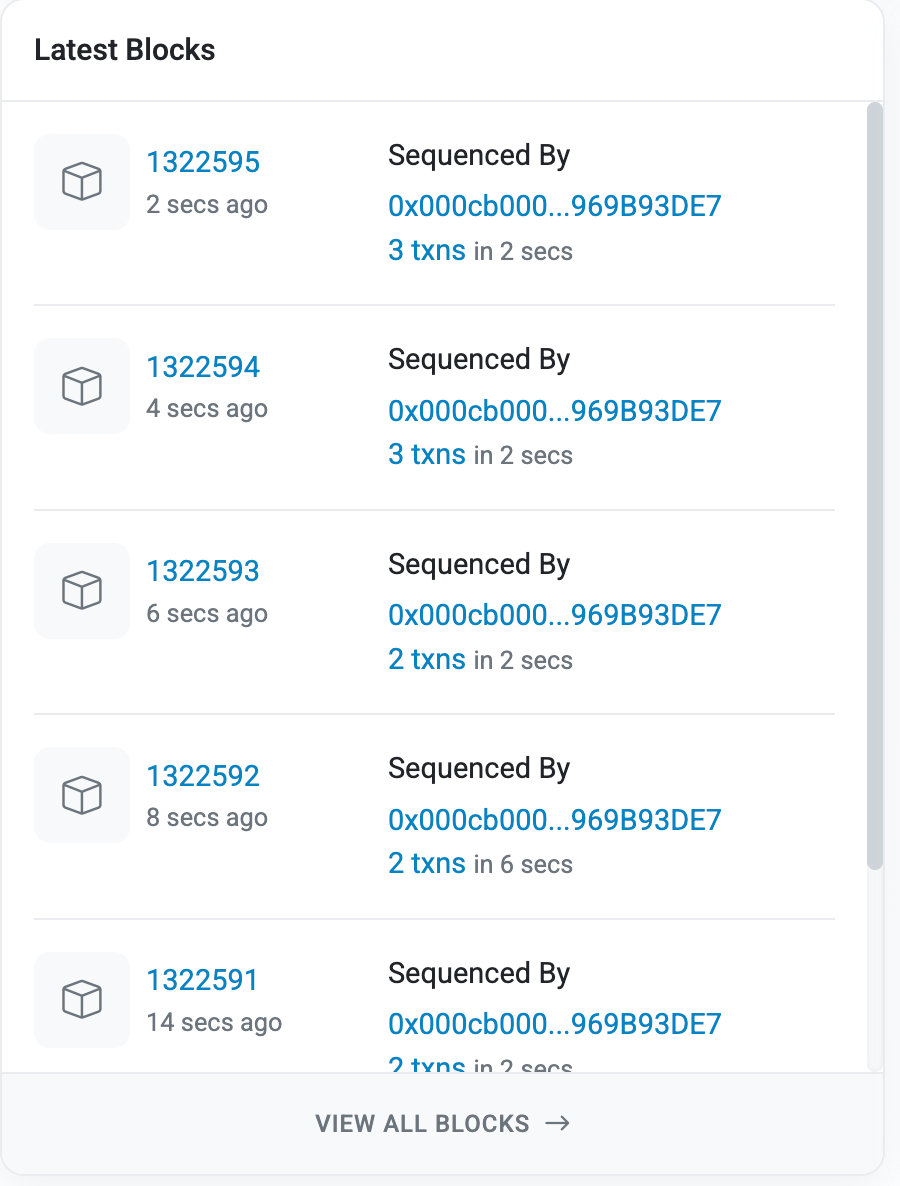Taiko Alethia, the first-ever based rollup, went live just over a year ago. A fully Ethereum-aligned network that represented the best of blockchain, decentralization, and innovation. But it needed to go even further.
A based rollup like Taiko Alethia has no centralized sequencer. It uses Ethereum validators, and in doing so, it inherits the decentralized nature of Ethereum. This opens the door for block builders to participate in a permissionless way, making the rollup just as decentralized as Ethereum itself, while still gaining the benefits of rollups like cheaper fees.
But there was a drawback. Ethereum blocks take 12 seconds to produce. And if a based rollup uses Ethereum validators, it must follow that, too. This makes based rollups slower compared to rollups with centralized sequencers.
Not anymore. Enter preconfirmations.
Preconfirmations Change Everything
What do preconfs bring to Taiko Alethia Mainnet? In one word: speed.
Starting now, your transactions on Taiko Alethia mainnet will be 20 to 30 times faster than before. That means a massive upgrade in user experience. Whether you're trading, playing a game, using DeFi, or just interacting with any dApp, everything will feel faster, smoother, and more responsive.
You no longer have to choose between decentralization and usability. Preconfirmations let you have both. This changes the game not only for Taiko, but for Ethereum scaling overall.
What Are Preconfs, Really?
Preconfirmations are a system that allows transactions to get a soft confirmation before they are finalized on-chain. This soft commitment comes from preconfirmers — actors who monitor the mempool and promise to include certain transactions in the next block. If they fail to do so, there are consequences, like getting their funds slashed. If they succeed, users get a fast and confident signal that their transaction will go through. This way users have an economical security protecting them.
This whole process means users can interact with the network as if it were real-time, while still keeping all the benefits of Ethereum-level decentralization.
To make this possible, the Pacaya release introduced key technical upgrades to Taiko Alethia:
-
Batch Block Proposals: Blocks are now proposed in batches. These share metadata and pull transactions from the same pool, making preconfirmations efficient and scalable.
-
Simplified Proving: Guardian provers were removed. Now a single verifier contract handles multiproving, reducing complexity and making the system easier to maintain.
-
Faster Withdrawals: Proving windows have been cut to 2 hours, and more improvements are on the way.
-
ERC20 Solver Support: The ERC20Vault now supports solvers, improving bridge performance and speed.
-
Ether as Proving Bonds: Taiko Alethia still uses TAIKO, but now the protocol supports Ether for other L2s as proving bonds.
All of this makes preconfirmations possible without adding new trust assumptions. If you wish to dive into technical details, check out the documentation provided here.
What Does “Phase 1 Preconfs” Mean?
Preconfirmations are a new and exciting technology for Ethereum scaling. They allow us to retain the benefits of being a Layer 2—like faster transactions and lower costs—while remaining as decentralized as Ethereum itself.
To ensure the success of preconfirmations, we’ve decided to start preconfirmations with industry-leading partners. This helps everything run smoothly from the beginning.
This initial rollout is known as “Phase 1” of preconfirmations. During this phase, only whitelisted partners will be able to preconfirm transactions. Once the system is ready to become fully permissionless, we will proceed to “Phase 2” where preconfirming will be open to anyone who wants to take part in Taiko Alethia’s block-building process.
Who Helped Make This Happen?
This upgrade came through deep collaboration with some of the most respected teams in Ethereum development:
-
Chainbound provided research, reviews, and additional insight into making the protocol robust and secure.
-
Gattaca helped design, test, and refine the early implementation of preconfirmers.
-
Nethermind contributed to protocol upgrades, ERC20 support, and proving infrastructure.
This was a community effort driven by people who care deeply about keeping Ethereum decentralized and scalable.

What’s Next?
Right now, preconfirmations on Taiko are running in a whitelist-based system. That means only approved preconfirmers can operate in the network. This is a temporary setup. It allows the network to test and stabilize the system before opening it up.
The vision is clear: we will move on to full permissionlessness with Phase 2. Anyone should be able to run a preconf node, just like anyone can become a validator on Ethereum.
With preconfirmations live, new doors open for developers and users alike. Fast DeFi, real-time games, enterprise dApps, censorship-resistant voting — all of it is now possible on a fully decentralized rollup.
This is the new paradigm for Ethereum scaling. Be a part of it.
Join us 💗
Explore open positions on our job board.
Follow us 🥁
Get the latest from Taiko:
-
Website: https://taiko.xyz.
-
Discord: https://discord.gg/taikoxyz.
-
GitHub: https://github.com/taikoxyz.
-
Twitter: https://twitter.com/taikoxyz.
-
Community forum: https://community.taiko.xyz.
-
YouTube: https://www.youtube.com/@taikoxyz.
-
Warpcast: https://warpcast.com/taikoxyz.
Contribute 🤓
Contribute to Taiko on GitHub and earn a GitPOAP! You will also be featured as a contributor on our README. Get started with the contributing manual.